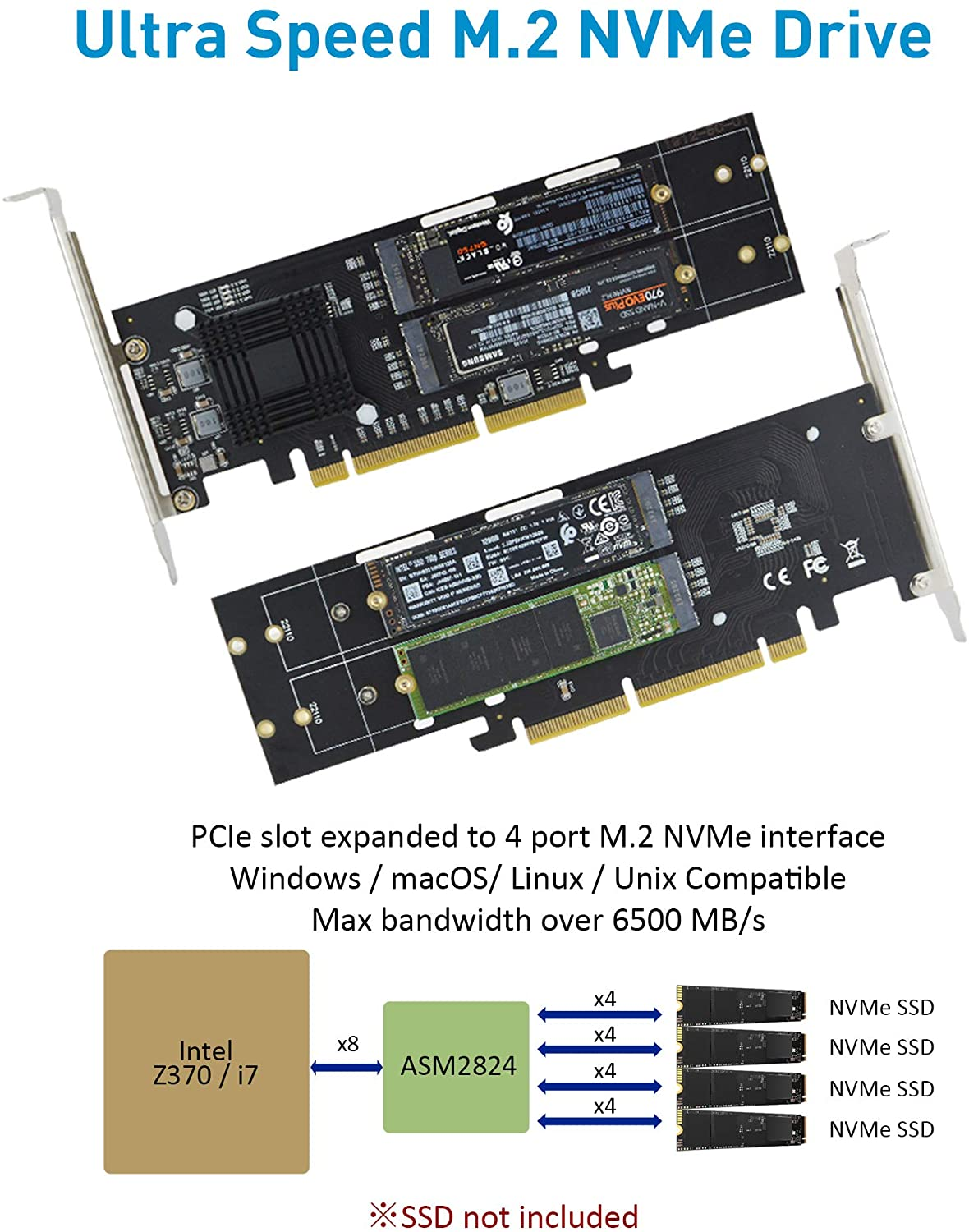Zarathustra[H]
Extremely [H]
- Joined
- Oct 29, 2000
- Messages
- 38,874
Hey all,
So, my server is based around an aging Supermicro X9DRI-F. I haven't upgraded yet, as I don't feel like spending the money to re-buy 256GB RAM in DDR4.
The plan was to start moving over to NVMe drives for some of the caching and other needed fast storage devices, as the old SATA stuff is getting old and slow. I had read good things about those Dell Quad adapters, but they apparently depend on PCIe bifurcation being supported by the motherboard.
As a first step, I bought a couple of 280GB 900p U.2 Optane drives and a Supermicro AOC-SLG3-2E4R U.2 adapter which also requires bifurcation. I could not get this to work no matter what I did. The manual and bios suggests this board supports bifurcation on all 6 PCIe slots. (3 16x, 3 8x). Unfortunately it does not work as advertised. Turning bifurcation on on the slot does not appear to have any effect, and only the first device is ever detected by the system.
After spending an evening trying to remember how to create a bootable DOS USB stick, upgrading the bios and testing all of the slots, I decided to hit up google, and it turns out other have the same issue with this motherboard. Oh well.
I am returning the AOC-SLG3-2E4R and picking up the R less version (AOC-SLG3-2E4) which has a PLX chip to avoid the bifurcation requirement. Hopefully this will allow me to use the two Optanes in an 8x slot.
The question is, what - then - do I do for the remainder of my storage needs. The aforementioned quad Dell requires working bifurcation. I apparently can't trust that what is on my motherboard will work
I have done some googling, and came up with this thing on Amazon by a company I have never heard of named Adwits. It looks likre while it may have a 16x connector, it only uses 8x bandwidth shared over 4 devices, which is a little lame..
At least judging by this:

I would much prefer a non-blocking solution.
1.) Does anyone have any experience with it? Is it any good?
2.) Are there any other options that work without bifurcation I should be aware of?
Appreciate any suggestions.
So, my server is based around an aging Supermicro X9DRI-F. I haven't upgraded yet, as I don't feel like spending the money to re-buy 256GB RAM in DDR4.
The plan was to start moving over to NVMe drives for some of the caching and other needed fast storage devices, as the old SATA stuff is getting old and slow. I had read good things about those Dell Quad adapters, but they apparently depend on PCIe bifurcation being supported by the motherboard.
As a first step, I bought a couple of 280GB 900p U.2 Optane drives and a Supermicro AOC-SLG3-2E4R U.2 adapter which also requires bifurcation. I could not get this to work no matter what I did. The manual and bios suggests this board supports bifurcation on all 6 PCIe slots. (3 16x, 3 8x). Unfortunately it does not work as advertised. Turning bifurcation on on the slot does not appear to have any effect, and only the first device is ever detected by the system.
After spending an evening trying to remember how to create a bootable DOS USB stick, upgrading the bios and testing all of the slots, I decided to hit up google, and it turns out other have the same issue with this motherboard. Oh well.
I am returning the AOC-SLG3-2E4R and picking up the R less version (AOC-SLG3-2E4) which has a PLX chip to avoid the bifurcation requirement. Hopefully this will allow me to use the two Optanes in an 8x slot.
The question is, what - then - do I do for the remainder of my storage needs. The aforementioned quad Dell requires working bifurcation. I apparently can't trust that what is on my motherboard will work
I have done some googling, and came up with this thing on Amazon by a company I have never heard of named Adwits. It looks likre while it may have a 16x connector, it only uses 8x bandwidth shared over 4 devices, which is a little lame..
At least judging by this:

I would much prefer a non-blocking solution.
1.) Does anyone have any experience with it? Is it any good?
2.) Are there any other options that work without bifurcation I should be aware of?
Appreciate any suggestions.
Last edited:
As an Amazon Associate, HardForum may earn from qualifying purchases.
![[H]ard|Forum](/styles/hardforum/xenforo/logo_dark.png)